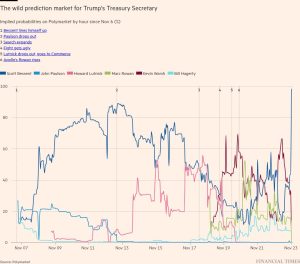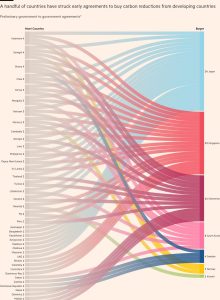Israel assures US that retaliation against Iran will target military
Unlock the US Election Countdown newsletter for free
The stories that matter on money and politics in the race for the White House
Top Israeli officials have told the US that they are planning to limit an expected counterstrike against Iran to military targets rather than hitting the energy sector or nuclear facilities, according to two people close to the talks.
The assurances from Israel come as the US has been pressing Benjamin Netanyahu’s government to avoid retaliation against Iran that could trigger further escalation and a broader conflict in the Middle East, with just three weeks to go before the US presidential election.
Oil prices dropped sharply on Monday evening on reports that Israel would restrict its response. Brent crude, the global benchmark, fell almost 3 per cent on Tuesday to $75 a barrel.
Washington’s expectations that Israel will exercise some restraint in its planned attack on Iran — a response to a ballistic missile attack on Israel from Iran earlier this month — were cemented during call between Netanyahu and US President Joe Biden last week that the White House described as “productive”.
A third person briefed on the situation said “the thinking” was for Israel to respond before the US election in November, and that Israel was closely co-ordinating its planning to ensure the counterstrike would not influence American voters.
Netanyahu’s office said: “We listen to the opinions of the US, but we will make our final decisions based on our national interests.” The Washington Post first reported on Monday that Netanyahu had reassured Biden over Israel’s plans. The White House declined to comment.
The signal from Israel over its intentions was followed this weekend by the Pentagon announcing that it would send an advanced antimissile system to Israel, manned by US troops, in order to help defend the country against a potential Iranian response.
US officials have cautioned that their ability to influence Israel’s actions is limited, despite the fact that America is Israel’s most powerful ally and a top supplier of military aid.
But even before the call between Biden and Netanyahu, the Financial Times reported this month that Washington expected a measured response from Israel against Tehran, believing that Israel did not want the conflict with Iran to spiral further out of control.
Biden had made it clear that he did not want to see any strikes on Iranian nuclear facilities or the energy sector, which threatened to trigger a jump in oil prices ahead of the US election.
Kamala Harris, the US vice-president and Democratic candidate for president, is already vulnerable to criticism over her handling of inflation from Donald Trump, the former president and Republican rival, which would be exacerbated by a sudden new surge in the cost of petrol.
The talks over Israel’s counterstrike against Iran unfolded as officials in Washington were warily watching Israel’s escalating military offensive and heavy bombing in Lebanon against the militant group Hizbollah.
Fighting continued on Tuesday morning with Hizbollah saying that it clashed with Israeli troops in the village of Rab Thalatheen in the south of the country. Israel said that its jets bombed 230 sites in Lebanon and Gaza overnight.
Meanwhile, Israeli attacks on Gaza have intensified in recent days, triggering new warnings from Washington about the protection of civilians.
“The UN reports that no food has entered northern Gaza in nearly 2 weeks,” Harris wrote on X on Sunday. “Israel must urgently do more to facilitate the flow of aid to those in need . . . International humanitarian law must be respected.”
#Israel #assures #retaliation #Iran #target #military






